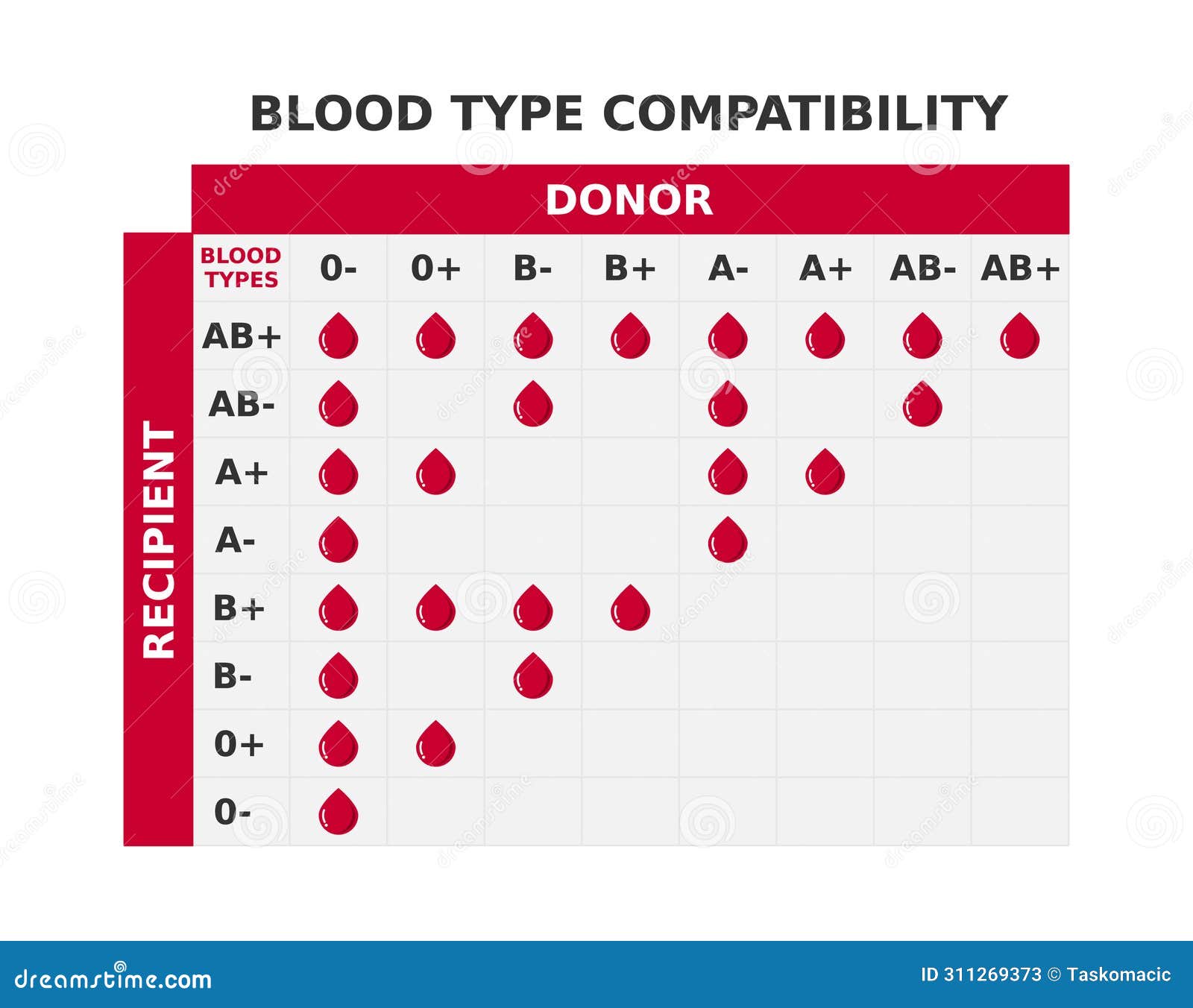Your blood type does not determine whether you can enjoy a fulfilling, healthy marriage. There are some medical considerations regarding blood type compatibility if you and your partner plan to have biological children, but modern prenatal care offers options to reduce these risks.
It’s still useful to know your partner’s blood type for emergencies. Depending on both of your blood types, one partner may be able to donate blood to the other if needed.

Read on to understand blood types and how they might relate to married life.
What are the various blood types?
Everyone has a blood type. The four primary blood groups are:
- A
- B
- O
- AB
These groups differ mainly by the presence or absence of antigens that can trigger an immune response.
Besides these four groups, there’s a protein known as the Rh factor, which can be present (+) or absent (−) within each group. That expands the categories into eight common types:
- A+
- A−
- B+
- B−
- O+
- O−
- AB+
- AB−
Your blood type is inherited and fixed at birth; it cannot be altered later in life.
How can blood compatibility affect pregnancy?
Blood type compatibility is mainly a concern for couples when pregnancy is involved and both partners are biological parents. The key issue is the Rh factor.
Rh factor is an inherited protein, so whether someone is Rh negative (−) or Rh positive (+) depends on their parents. Most people are Rh positive.
Having Rh positive or negative blood usually doesn’t impact your own health, but it can matter during pregnancy.
Rh factor and pregnancy
Rh factor becomes important if the biological mother is Rh− and the fetus is Rh+. If fetal Rh+ blood cells enter the mother’s bloodstream, her immune system might react by producing antibodies that attack the baby’s Rh+ red blood cells.
At the first prenatal appointment, your provider will typically order blood type and Rh factor testing. If you are Rh−, your blood may be tested again later in pregnancy to check whether you’ve developed antibodies against Rh factor, which could indicate the fetus is Rh+.
If the doctor suspects potential Rh incompatibility, your pregnancy will receive closer monitoring and might require additional care.
Although maternal and fetal blood normally remain separate during pregnancy, small amounts of fetal blood can mix with the mother’s blood during delivery. If Rh incompatibility exists and this occurs, the mother’s immune system may form Rh antibodies.
These antibodies rarely harm an Rh+ baby in the first pregnancy. However, they can pose problems in later pregnancies if the next fetus is also Rh+.
When Rh incompatibility affects a subsequent pregnancy, maternal antibodies may attack the baby’s red blood cells, possibly necessitating a fetal or newborn red blood cell transfusion.
How is Rh incompatibility managed?
If Rh incompatibility is identified, clinicians commonly recommend Rh immune globulin (often called RhoGAM) during the seventh month of pregnancy, and again within 72 hours after delivery if the newborn is confirmed Rh positive.
Rh immune globulin contains Rh IgG antibodies, which prevent the mother’s immune system from recognizing fetal Rh+ cells as foreign, thereby stopping her body from producing its own Rh antibodies.
Blood transfusions between partners
Compatible blood types matter when a transfusion is needed. People with incompatible blood types cannot safely donate blood to each other. Receiving the wrong blood type can cause a dangerous, potentially life-threatening reaction.
Being able to provide blood for a partner in a medical emergency isn’t a relationship requirement, but it can be a practical advantage during crises.
According to the American Red Cross:
- If you are AB+, you are a universal recipient and can accept red blood cells from any donor.
- If you are O−, you are a universal donor and can give red blood cells to anyone.
- If you are type A, you may receive A or O red blood cells.
- If you are type B, you may receive B or O red blood cells.
Rh+ blood (either +) can be transfused into Rh+ recipients, but if you are Rh− you should only receive Rh− blood.
If you want to be able to donate blood to your spouse in an emergency, make sure you and your future spouse have compatible blood groups.
How frequent are different blood types?
Your chances of finding a partner with a compatible blood type vary by blood group. Per the Stanford School of Medicine, in the United States:
- O+ is about 37.4% of adults.
- O− is about 6.6% of adults.
- A+ is about 35.7% of adults.
- A− is about 6.3% of adults.
- B+ is about 8.5% of adults.
- B− is about 1.5% of adults.
- AB+ is about 3.4% of adults.
- AB− is about 0.6% of adults.
Does blood type influence personality compatibility?
In Japan, a blood type personality theory called ketsueki-gata suggests that blood groups indicate personality traits. Introduced in the 1920s by psychologist Tokeji Furukawa, the theory assigns traits to each blood type:
- Type A: organized
- Type B: self-centered
- Type O: positive
- Type AB: unconventional
The theory proposes certain pairings are likelier to produce happy marriages, for example:
- O male × A female
- A male × A female
- O male × B female
- O male × O female
Ketsueki-gata considers only male-female relationships and doesn’t address gender identities outside that binary, such as nonbinary or genderqueer people.
Moreover, a 2015 study found no scientific consensus linking blood type to personality characteristics or marital compatibility.
Bottom line
Blood type compatibility in marriage is primarily a medical concern for Rh factor differences during pregnancy, and only when both partners are the biological parents.
Possible Rh incompatibilities can be detected, monitored, and treated, so Rh factor shouldn’t prevent a healthy marriage or healthy children.
Some people, particularly followers of the Japanese ketsueki-gata idea, associate blood types with personality, but those links lack support from mainstream clinical research.
Finally, some couples consider blood type compatibility useful because of the potential to donate blood to each other in emergencies.
























Leave a Reply
You must be logged in to post a comment.